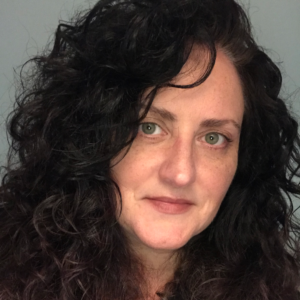Arthur Miller’s striking play The Crucible is set in the realm of the 1692 Salem witch trials. However, there are many realities about the time that didn’t make their way into the play. In this symposium, two educators from the Salem Witch Museum will discuss the history of the Salem Witch Trials as well as the modern framing of witches in the United States.
This program is funded in part by Mass Humanities, which receives support from the Massachusetts Cultural Council and is an affiliate of the National Endowment for the Humanities.

 Debra Lavelle is a doctoral student in Northeastern University’s World History Department. She focuses on Early America, and is working on a dissertation entitled “A Desirable Calamity: Magic, the Body, and Transgressive Women in the Visual Culture and Public History of the Salem Witch Trials”. She received her undergraduate degrees in Art History and Archaeology from the University of Massachusetts at Dartmouth and her Master’s degree in Art History from George Washington University. She is particularly interested in how the visual and public presentations of the Salem Witch Trials have impacted ideas about gender, sexuality, and the female body from the seventeenth through the twenty-first centuries.
Debra Lavelle is a doctoral student in Northeastern University’s World History Department. She focuses on Early America, and is working on a dissertation entitled “A Desirable Calamity: Magic, the Body, and Transgressive Women in the Visual Culture and Public History of the Salem Witch Trials”. She received her undergraduate degrees in Art History and Archaeology from the University of Massachusetts at Dartmouth and her Master’s degree in Art History from George Washington University. She is particularly interested in how the visual and public presentations of the Salem Witch Trials have impacted ideas about gender, sexuality, and the female body from the seventeenth through the twenty-first centuries.Moderated by Dr. Martin Blatt
 Marty Blatt has served as Professor of the Practice and Director of the Public History Program at Northeastern for the last five years. He coordinated bringing the Humanities Action Lab exhibit, States of Incarceration, to campus. Blatt is a board member of the Northeastern Humanities Center and part of the University Holocaust and Genocide Awareness Committee. Blatt was Curator of the exhibit, Long Road to Justice – African Americans and the Courts, on permanent display at the Brooke Court House. He serves on the Bostonian Society Interpretation Committee and on the Historian Advisory Board of the Freedom Trail Foundation. In spring, 2020, with the support of MASS Humanities and the New England Humanities Consortium, he is collaborating with the Massachuset Tribe to organize a public reading of William Apess’s Eulogy to King Philip. Blatt worked for the National Park Service in Boston and Lowell for twenty-four years as a historian and cultural resources manager. In 2013, he conceived and coordinated the historical pageant in Boston, “Roots of Liberty: The Haitian Revolution and the American Civil War.” Dr. Blatt has served as President of the National Council on Public History, on the Executive Board of the Organization of American Historians, and on the Board of MASS Humanities. Blatt’s museum credits include exhibits at Old South Meeting House and the Battle of Bunker Hill Museum, and a traveling exhibit on the Gulag, produced by the National Park Service, the Gulag Museum, and Amnesty International.
Marty Blatt has served as Professor of the Practice and Director of the Public History Program at Northeastern for the last five years. He coordinated bringing the Humanities Action Lab exhibit, States of Incarceration, to campus. Blatt is a board member of the Northeastern Humanities Center and part of the University Holocaust and Genocide Awareness Committee. Blatt was Curator of the exhibit, Long Road to Justice – African Americans and the Courts, on permanent display at the Brooke Court House. He serves on the Bostonian Society Interpretation Committee and on the Historian Advisory Board of the Freedom Trail Foundation. In spring, 2020, with the support of MASS Humanities and the New England Humanities Consortium, he is collaborating with the Massachuset Tribe to organize a public reading of William Apess’s Eulogy to King Philip. Blatt worked for the National Park Service in Boston and Lowell for twenty-four years as a historian and cultural resources manager. In 2013, he conceived and coordinated the historical pageant in Boston, “Roots of Liberty: The Haitian Revolution and the American Civil War.” Dr. Blatt has served as President of the National Council on Public History, on the Executive Board of the Organization of American Historians, and on the Board of MASS Humanities. Blatt’s museum credits include exhibits at Old South Meeting House and the Battle of Bunker Hill Museum, and a traveling exhibit on the Gulag, produced by the National Park Service, the Gulag Museum, and Amnesty International.
